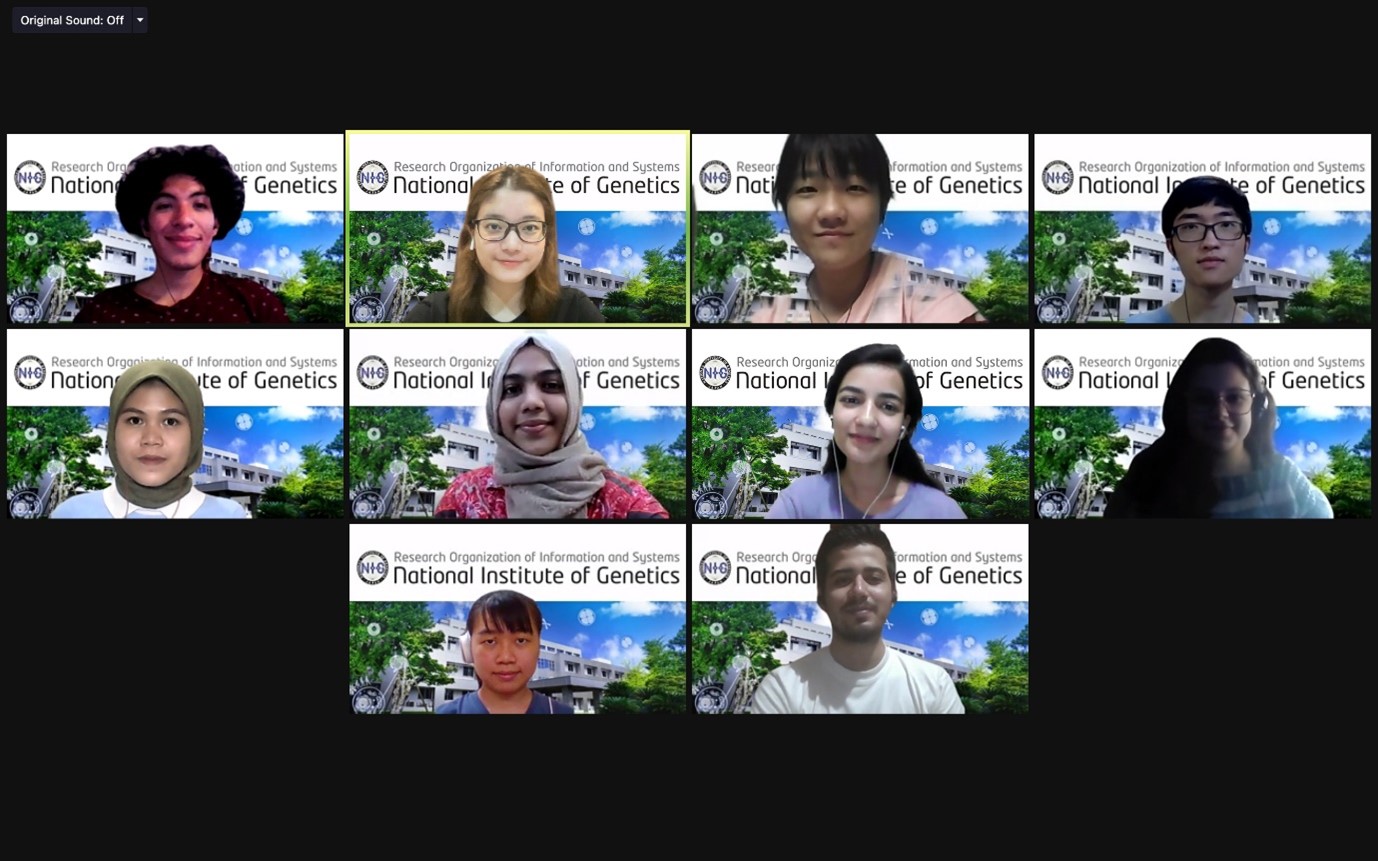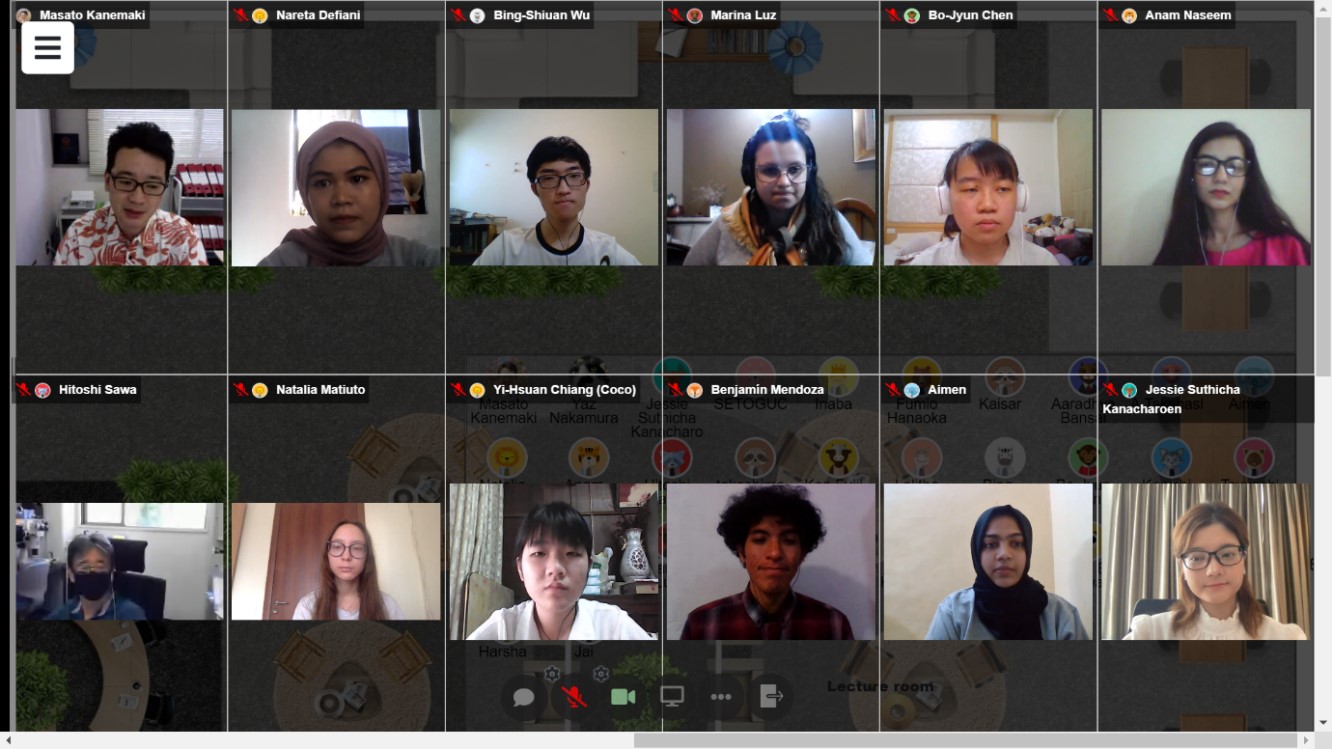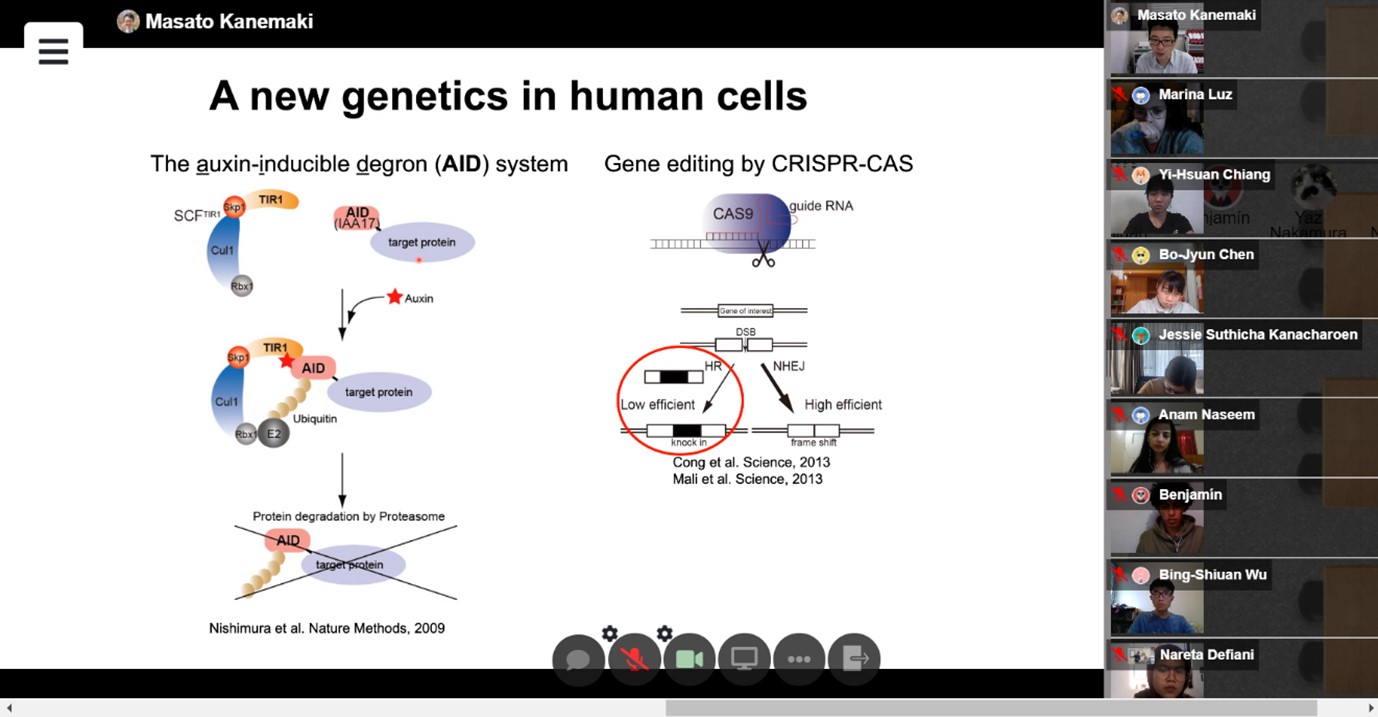This past summer, one of UGM undergraduate students, Nareta Defiani (Biology, 2018) just completed her internship program hosted by the National Institute of Genetics at the Graduate University for Advanced Studies (SOKENDAI) through the NIGINTERN 2021 Program. The 14th NIGINTERN program was carried out from June 17 to July 28, 2021. This program took 6-week in total, including the welcoming party, colloquium, lectures by outstanding researchers from inside and outside NIG, farewell party, and a social night conducted by fellow NIG interns.
“Although NIGINTERN 2021 was held in a virtual concept, due to COVID-19 situations, I am really thankful of the NIG committee members for giving me the opportunity of letting me understand the wide range of opportunities for research in the field of developmental biology. It has been my honor of learning about the working environment of NIG. Also, I just met twelve amazing interns from around the world and we connected to each other regardless of the time zone and language barrier. The colloquiums and regular lectures, which are conducted in English, making it easier to understand.” said Nareta.
Every year, the NIGINTERN program accepts twelve undergraduate and graduate students in their pre-final years, whilst Nareta was the only and the first student admitted from Indonesia. Intern students will conduct independent research under the mentorship of a host investigator at NIG. The program includes training on scientific research, scientific communication, and lab visits to discuss with individual principal investigators. At the end of the program, participants will give a presentation on their experience at the “NIGINTERN Reports Symposium” (was not applied for NIGINTERN 2021). NIG will issue a certificate to those who have successfully completed the program.
Nareta was assigned to the Koichi Kawakami’s Laboratory of Molecular and Developmental Biology, focusing on zebrafish (Danio rerio). The primary objective of the research is to create a large number of transgenic fish lines that express the yeast Gal4 transcription activator in specific cells, tissues and organs. Also, Kawakami’s lab has developed the highly efficient transposon system in vertebrates by using the Tol2 transposable element from Japanese medaka fish. Further, in a model vertebrate zebrafish, the lab has developed powerful genetic methods, including the transposon-mediated transgenesis, gene trap, enhancer trap, and Gal4-UAS methods.
“It was very interesting yet so intense, but thanks to the lab members and colleagues that were very keen on me. Although this year I only had a virtual experience of researching, it was just beyond my expectations since everything was just well-planned and remarkable. For every UGM student who is willing to commit a higher-level and deep understanding of molecular biology research, I would recommend NIGINTERN without hesitation!” added Nareta.




